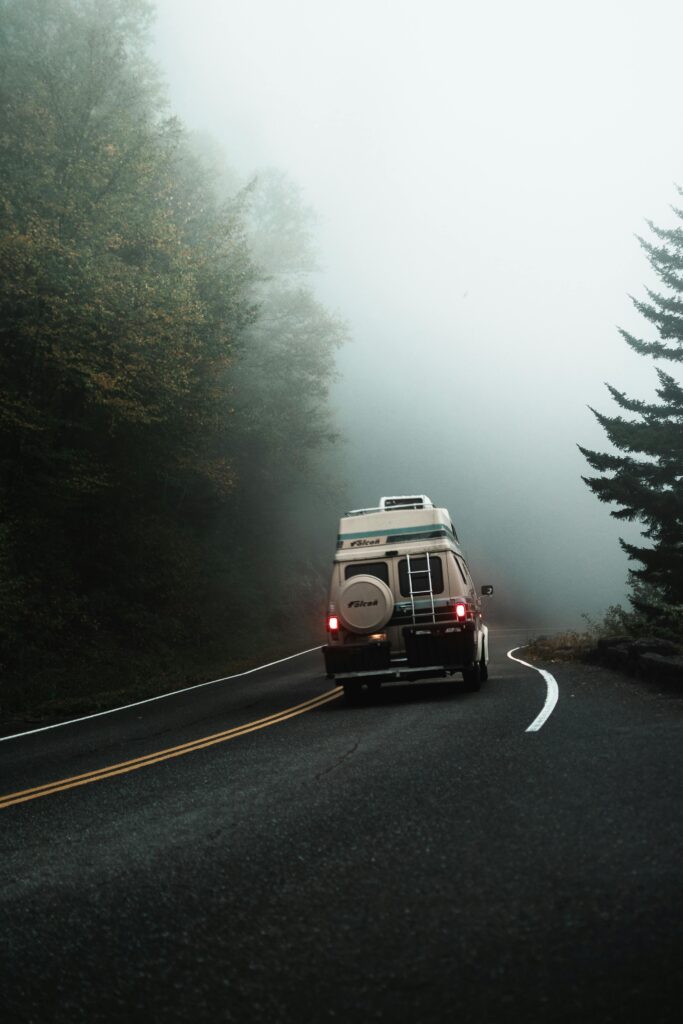Van Life Finances
Remote Job Ideas for Van Lifers
Finding a well-paying job as a freelancer in the gig economy is perfect for those who work from home, especially if you’re home is on wheels. Set up an Upwork or Fiverr profile for anything from writing, graphic design, web development, social media management, or even consulting. I also recommend checking out the Basecamp Outdoors Facebook group to find remote jobs specific to the outdoor industry – that’s how I found two of our current team members!
If you already have a job, consider asking your boss if you can work remotely and take your career on the road. Alternatively, starting your own business is a viable and lucrative option—it worked for me and has worked for many others, too.

Seasonal Work Ideas
Don’t mind being semi-stationary? Get seasonal work somewhere, for example, the National Parks are a great option, and ski resorts are always hiring multiple positions during the winter for all you ski bums out there. Cool Works and Basecamp Outdoors are great resources for finding seasonal gigs.
If you’re planning on moving around more often and need something temporary, get in the habit of checking Craigslist to see if there are events in need of staff or other places just looking for some extra help. If you like pets, trustworthy dog walkers are always in high demand!
How Much Does Van Life Cost?
Van life can fit into any budget. Whether you’re looking to live cheaply on the road or not, the cost of van life varies from person to person. Expenses depend on a lot of factors such as where you camp, how much you drive, whether you eat out often, and what activities you do along the way. I know van lifers who live on $800 a month and others who spend $2,000 or more.
The biggest expense of van life will most likely be buying your van and converting it. New empty vans cost around $40,000-$70,000 while conversions can vary from $10,000-$20,000 if you do it yourself or upwards of $250,000 for a professional, fully decked out van built by a top conversion company. Keep in mind that these are just estimates. Costs are different for everyone depending on their budget.
The cost of daily life on the road depends on whether you treat van life like your real life or a vacation. Do you eat or cook in? Do you pay for campsites or stay on BLM land? Do you focus on free activities or splurge on big adventures? In this blog post, I share some my budget and the common expenses you should plan for as a van lifer: How Much Does Van Life Cost? A Breakdown of Common Expenses.

Gear You Need for Living in a Van
The gear you need for van life can be boiled down to only having the items that you use most often in your daily life. Pay attention to what you’re currently using—or not using—so you can downsize to have only the essentials in your van. This is a great time to evaluate what you really need to be happy and to start thinking about ways you can potentially simplify your gear.
Check out a shop like The Container Store (it’s heaven for organizing nerds!) for different sized boxes, bins, and you guessed it, containers that can be easily stored in your van. Another great item is a handful of packing cubes that you can use to stash your clothing and soft goods and prevent clutter. For more ideas on how to stay organized in our van.
Deciding what to bring clothing wise may be one of the most difficult parts of downsizing for van life. In my post on Van Life Clothing, I outlined the basic packing tips that have allowed me to maintain a minimalist wardrobe that is neat, comfy, and versatile. Check out these tips for van life clothing:
- Keep it simple with solid colors or simple patterns that can go with anything.
- Only pack wrinkle-free, machine washable clothing.
- If you have a piece you really like, bring two or an extra in another color. It will make getting dressed very easy.
- If you don’t wear it often already at home, leave it at home.
- Make sure you plan for the change in seasons.
- Quality over quantity: what items will most efficiently accomplish the task and take up the least amount of space in your van?
The Importance of Leave No Trace
No matter what you’re doing, it’s so important to be responsible enjoyers of the outdoors. Even in a van, where you can easily come and go, being mindful of your footprint will make a huge difference in preserving these places for years to come.
Before you head out, familiarize yourself with the Leave No Trace principles to help minimize your impact at the campsites, on the trails, or even answering nature’s call in the woods. Also, make a commitment to leave places better than you found them by picking up any trash left behind by other campers.
Need to brush up on your Leave No Trace skills?
